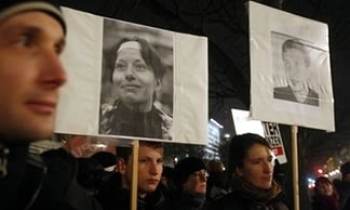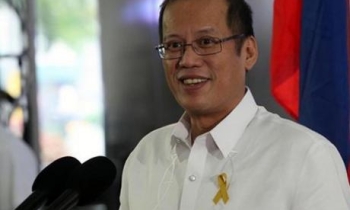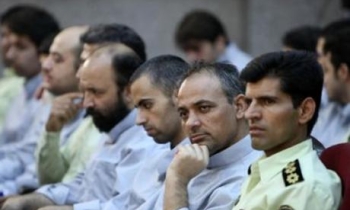Yesterday, the eve of World Press Freedom Day, Russia appeared in a bad light in three Western ratings of press freedom. The American human rights organization Freedom House gave Russia its lowest ever press freedom rating of 164 out of 195. The U.S. State Department placed Russia on its list of countries where freedom of the press is deteriorating, and the New York-based Committee to Protect Journalists to its Top 10 list of countries where freedom of speech is threatened. All of them mentioned the total control of the media by the authorities, political pressure on the independent press, plans to control the Internet and, most of all, the murder of Russian journalists.
Freedom House released its annual report at the “21st Century Threats to Press Freedom” conference in Washington. Russia received a record low position in it. Countries mentioned in the report are divided into three categories: those with free, partially free and unfree media. Russia retains its “unfree” status and lost six points off its score from last year. It is now grouped among Venezuela, Azerbaijan, Togo, Kazakhstan, Swaziland and Tajikistan.
Simultaneously, the U.S. State Department website posted a list of seven countries where freedom of the press is in rapid decline. Besides Russia, Afghanistan, Egypt, Lebanon, Pakistan, the Philippines and Venezuela.
Finally, the Committee to Protect Journalists placed Russia in third place on its Top 10 list of press freedom “backsliders,” which it shares with Azerbaijan, Congo, Cuba, Egypt, Ethiopia, Gambia, Morocco, Pakistan and Thailand.
The compilers of the rating used the same criteria: the political and economic conditions in which a country's media exists. The authors of the Freedom House report attribute Russia's low showing not only to political pressure on the independent press, but attempts by authorities to depict it as marginal. Executive director of Freedom House Jennifer Windsor called it an attempt “to eliminate potential sources of opposition.”
Freedom House research director Christopher Walker told Kommersant that “a critical factor in the lack of freedom in the Russian press remains full state control over television channels… That is a very important factor because the federal channels are the main sources of news and information for Russians.”
The authors of the report note that Russian authorities are close to establishing state control over the Internet. Limitations on the Internet are well established in China, Vietnam and Iran, the report notes, and journalists in those countries who work on the Internet, so-called cyber-dissidents, are tried and put in prison. The West considers the main indicator of the degradation of press freedom crimes against Russian journalists, the best known of which is the murder of Novaya gazeta reporter Anna Politkovskaya. Journalists are killed in Russia almost as often as in Iraq, the report states, and Russian authorities do not concern themselves very much with solving those crimes. Eleven journalists have been killed in Russia in the last five years, and not one of those crimes has been full investigated, according to the Committee to Protect Journalists. The Washington Post White House reporter and former Moscow bureau chief Peter Baker stated that “with the growing danger to independent journalists, it is hard not only to do your job, to get a comment from the opposition, for example, it is hard just to live.”
In Russia, the Western accounts have received a mixed reaction. Chairman of the Federation Council Committee on Foreign Affairs Mikhail Mareglov said that “We have to react calmly to criticism – filter out what is useful and leave the rest.” Margelov does not believe that there has been real degradation of press freedoms in Russia. “The Russia press is still varied, as it has been for the last 20 years. That which used to be considered a taste of freedom has gone on the Internet. Television is conservative. There has always been state influence on the press too. It simply varies between heavy-handed and a subtle game like chess.”
Chairman of Russian Journalists' Union Igor Yakovenko sees the state monopoly on the media growing rapidly. “Not only is there not a single medium not under state control,” he stated, “there are other principle changes in the system taking place. On television 90 percent of the journalism is propagandistic. There are either transponders and talking heads, or open propagandists and political manipulators, like Mikhail Leontyev and Vladimir Solovyev. Format also dictates self-censorship in the media. If you want to stay around, it is understood what to say about Chechnya, Putin and Estonia. Yakovenko holds that there is a “collapse of press freedom” underway in Russia. “Journalists are beaten at public meetings, Internews, the most effective civic organization for training journalists, has been destroyed, the regional opposition publications are not printed, and the State Duma recently decided to forbid journalists to send professional enquiries to the authorities. And most of all – the unpunished murders that have become profitable in Russia. With them, you can silence a problematic topic.”









